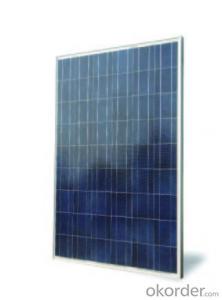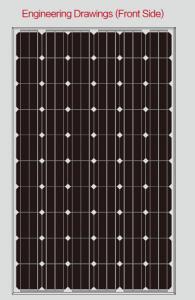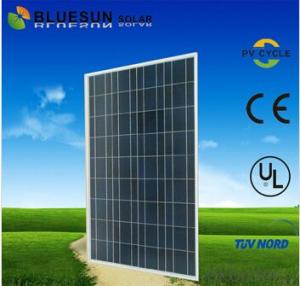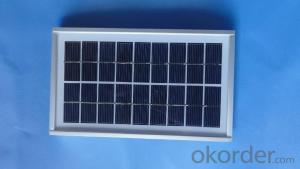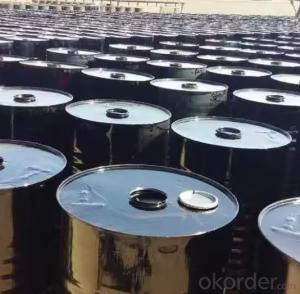Poly Crystalline Solar Panel RS220(P)-54
- Loading Port:
- China main port
- Payment Terms:
- TT OR LC
- Min Order Qty:
- 2000 watt
- Supply Capability:
- 1000000 watt/month
OKorder Service Pledge
OKorder Financial Service
You Might Also Like
Quality Assurance
10 Years Material & Craft
Power Guarantee
12 Years 90% Output
25 Years 80% Output
ISO9001:BSI
ISO14001:BSI
OHSAS18001:BSI
High Module Efficiency
Mechanical Load Capability up to 8000 Pa
Salt Mist Corrosion Protect Ammonia Resistance
Potential Induced Degradation Free
RS220P-54
RS210P-54
RS215P-54
RS225P-54
RS230P-54
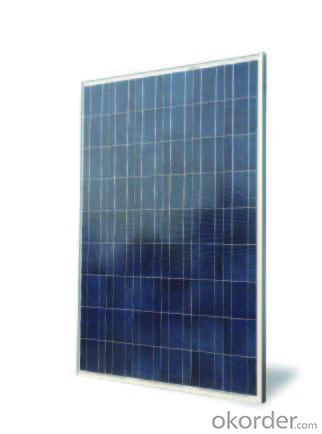
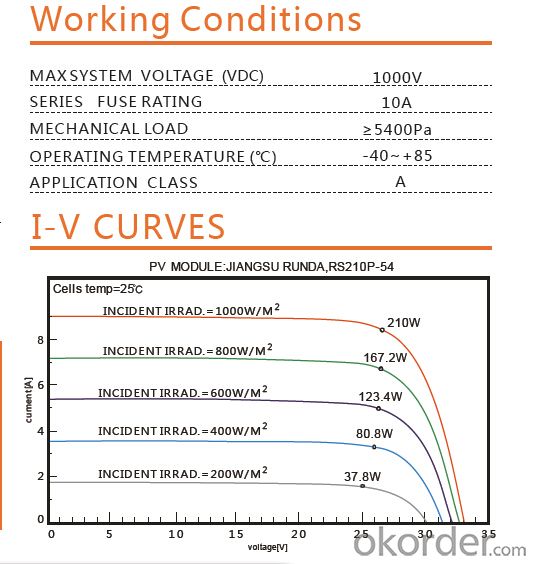
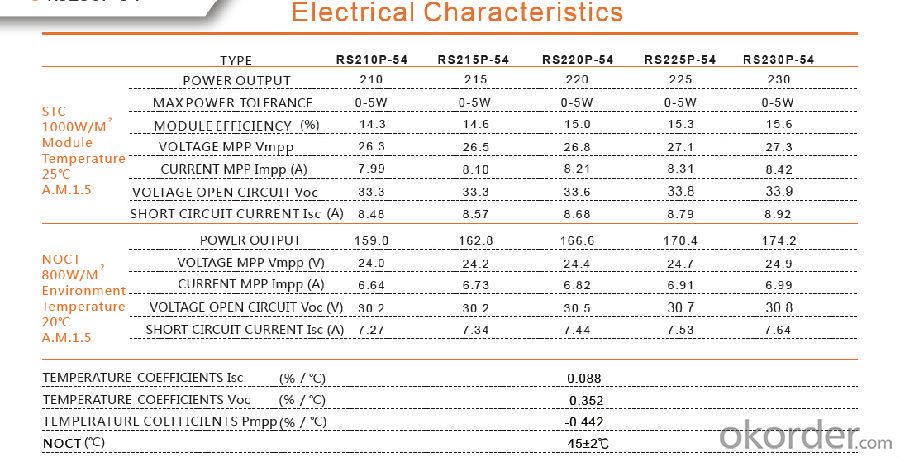
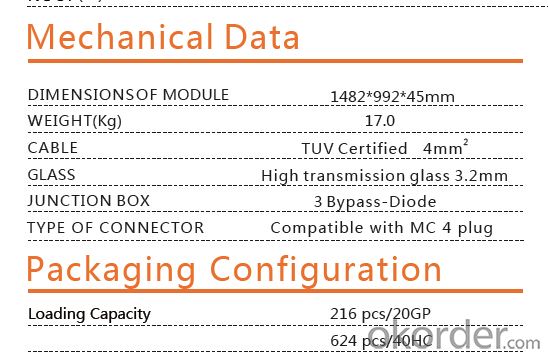
Structure of Solar Panels Description
Solar panel refers either to a photovoltaics (PV) panel, a solar hot water panel, or to a set of solar photovoltaics panels electrically connected and mounted on a supporting structure. A PV panel is a packaged, connected assembly of solar cells. Solar panels can be used as a component of a larger photovoltaic system to generate and supply electricity in commercial and residential applications. Each panel is rated by its DC output power under standard test conditions, and typically ranges from 100 to 320 watts. The efficiency of a panel determines the area of a panel given the same rated output – an 8% efficient 230 watt panel will have twice the area of a 16% efficient 230 watt panel. There are a few solar panels available that are exceeding 19% efficiency. A single solar panel can produce only a limited amount of power; most installations contain multiple panels. A photovoltaic system typically includes a panel or an array of solar panels, an inverter, and sometimes a battery and/or solar tracker and interconnection wiring.
Efficiencies
Depending on construction, photovoltaic modules can produce electricity from a range of frequencies of light, but usually cannot cover the entire solar range (specifically, ultraviolet, infrared and low or diffused light). Hence, much of the incident sunlight energy is wasted by solar modules, and they can give far higher efficiencies if illuminated with monochromatic light. Therefore, another design concept is to split the light into different wavelength ranges and direct the beams onto different cells tuned to those ranges. This has been projected to be capable of raising efficiency by 50%. Scientists from Spectrolab, a subsidiary of Boeing, have reported development of multijunction solar cells with an efficiency of more than 40%, a new world record for solar photovoltaic cells. The Spectrolab scientists also predict that concentrator solar cells could achieve efficiencies of more than 45% or even 50% in the future, with theoretical efficiencies being about 58% in cells with more than three junctions.
FAQ of Solar Panels
Q1:Can we visit your factory?
A1:Sure,welcome at any time,seeing is believing.
Q2:Which payment terms can you accept?
A2:T/T,L/C,Moneygram,Paypal are available for us.
Q3:How to guarantee the Quality of the products?
A3:We have established the international advanced Quality management system,every link from raw material to final product we have strict Quality test;We resolutely put an end to unQualified products flowing into the market. At the same time, we will provide necessary follow-up service assurance.
- Q:Can solar panels be installed in areas with high levels of air pollution?
- Yes, solar panels can be installed in areas with high levels of air pollution. While air pollution may slightly reduce the efficiency of solar panels by blocking sunlight, they can still generate electricity even in polluted environments. Regular maintenance and cleaning of the panels can help mitigate any potential impact on their performance. Additionally, solar energy remains a sustainable and environmentally friendly option, regardless of air pollution levels.
- Q:I have a solar panel that puts out 00v, .5 amps in full sun. Before I thought it would charge a 2v battery without a solar charger but then I talked to someone and they said that it was wasting a lot of power and could potentially hurt the battery. A second part to this question is what happens if I put it on a 72v battery without a controller. Thanks!
- Guide okorder /
- Q:(For a project)I know they are made of silicon, but I want to EVERYTHING they are made of. Ex Metal (What kind)Please tell me everything used from their production to the finished projectThank you
- Solar panels are slabs of semi-conductor metal. Technically speaking, they are a slab of silicon semi-conductor doped or added with impurities to make it a better conductor. Solar panels could also be made of Gallium Arsenide which is a semi-conductor metal exclusively used in photo-voltaic cells.The silicon slabs are polished and glossed before doping. After processing, for protection, a thin glass layer is embossed on the solar cells slab. Silicon also is shiny and reflects about 35% of sunlight. Hence, an anti-reflective coating is usually applied over the slabs to reduce the amount of sunlight lost.
- Q:Do solar panels require a specific type of inverter for converting DC to AC power?
- Yes, solar panels do require a specific type of inverter, known as a DC to AC inverter, to convert the direct current (DC) generated by the panels into alternating current (AC) power that can be used in homes and businesses.
- Q:Can someone tell me the average savings you get PER solar panel installed? I do not have the money to invest in a bunch of them at once, so I am forced to buy one at a time, when I have the money. So how much can I expect to save after I buy the first one?
- No matter what or how you do it it is best to get off coal and nukes. So it cost a little bit of money you are buying 30 years of electric. How much will you spend adding in cost of living increases over the next 30 years? Solar really is pretty cheap if you take the time to do the long term math. If you use your cost at to days rates it does seem like a lot. But if you do the math like in real life with 3.5% compounded cost of living increases per year and 6.5% fuel increases per year. Well, you pay a lot more renting power. One other thing to think about and Al Gore keeps pointing it out is, Will your off spring be alive in 50 years from now if you don't buy the solar panel? Kind of like not going to the doctor because you can't afford the bill. Well I would rather owe a bill to a doctor that I will have trouble paying then not be alive at all to try. If you don't have the money to jump in and go full blown Green you should buy a starter system. You can get a system that can be expanded to 3000 watts (enough to power an energy efficient home). Would cost you about $8000 USD to get started and then you could add three solar modules at a time till you get it up to the 3000 watt max. And even have backup power. Or you could just buy a 000 watt system for about the same price and just add 3 of them over the years. There are many ways to get started. The deal is everyone needs to get started even if it is a small system. If all 50 million homes in the USA would install a small 000 watt system with 4 hours of sun light a day. We would provide (000 watts times 4 hours times 365 days times 50 million homes) 29,000,000,000,000 watts not from coal or nuke plants per year. I wonder if that would help?
- Q:I am building a solar panel I have wired in series 36 .5 volt solar cells to produce 8 volts I have another panel that has 34 .5 volt solar cells to produce 7 volts. Any issues with wiring these 2 arrays in Parallel? I.E. would the smaller array take usable power away from the larger array?
- The okorder /
- Q:What are the advantages of using solar panels?
- There are several advantages of using solar panels. Firstly, solar panels harness energy from the sun, which is a renewable source of power, making it environmentally friendly. They produce clean energy, reducing greenhouse gas emissions and contributing to a more sustainable future. Solar panels also provide independence from the grid, allowing homeowners to generate their own electricity and potentially save on energy bills. Additionally, solar panels require minimal maintenance, have a long lifespan, and can increase the value of a property.
- Q:I am in need of solar panels and the batteries that I can store the energy in. I need to be able to run a laptop, cell phone, and LED lights from it. When I research I see all sorts of options with regards to watts, VMPs, and AMPs. I also see that I may need a controller, an inverter, and various other components. Can anyone help me through these terms and what i need to know in order to efficiently generate and store the electricity. Thanks
- Okay well solar panels only work under sunlight and it saves alot of electricty as compared to your normal switches.And it also saves money=D.One thing though...it only works under sunlight...remember this fact. Power storage simply means a device which can store power. Well a generator stores power and a power station too!! Otherwise they can't flow through our electric current..... So for power usage simply is like on the fan/lights/mobile/computers/modems/e.t.c are considered as power usage as you are using the power=P Well hope this information helps you!
- Q:Im doing a science project and I need to know what gases or liquids a solar panel can make that is not friendly to the environment. Please name all the gases and liquids and explain how they damage the environment. It would be most likely that you will get best answer if you find all the bad things about solar energy and explain why they are bad and how they affect nature. that would be helpful to. Thank you
- Radition
- Q:Can solar panels be used in apartments or condominiums?
- Yes, solar panels can be used in apartments or condominiums. However, the feasibility of installation and usage may vary depending on the specific circumstances of the building, such as roof space, orientation, and ownership structure. Some apartments and condominiums have successfully implemented shared solar systems or community solar programs to enable residents to benefit from solar energy.
1. Manufacturer Overview |
|
|---|---|
| Location | |
| Year Established | |
| Annual Output Value | |
| Main Markets | |
| Company Certifications | |
2. Manufacturer Certificates |
|
|---|---|
| a) Certification Name | |
| Range | |
| Reference | |
| Validity Period | |
3. Manufacturer Capability |
|
|---|---|
| a)Trade Capacity | |
| Nearest Port | |
| Export Percentage | |
| No.of Employees in Trade Department | |
| Language Spoken: | |
| b)Factory Information | |
| Factory Size: | |
| No. of Production Lines | |
| Contract Manufacturing | |
| Product Price Range | |
Send your message to us
Poly Crystalline Solar Panel RS220(P)-54
- Loading Port:
- China main port
- Payment Terms:
- TT OR LC
- Min Order Qty:
- 2000 watt
- Supply Capability:
- 1000000 watt/month
OKorder Service Pledge
OKorder Financial Service
Similar products
New products
Hot products
Related keywords
